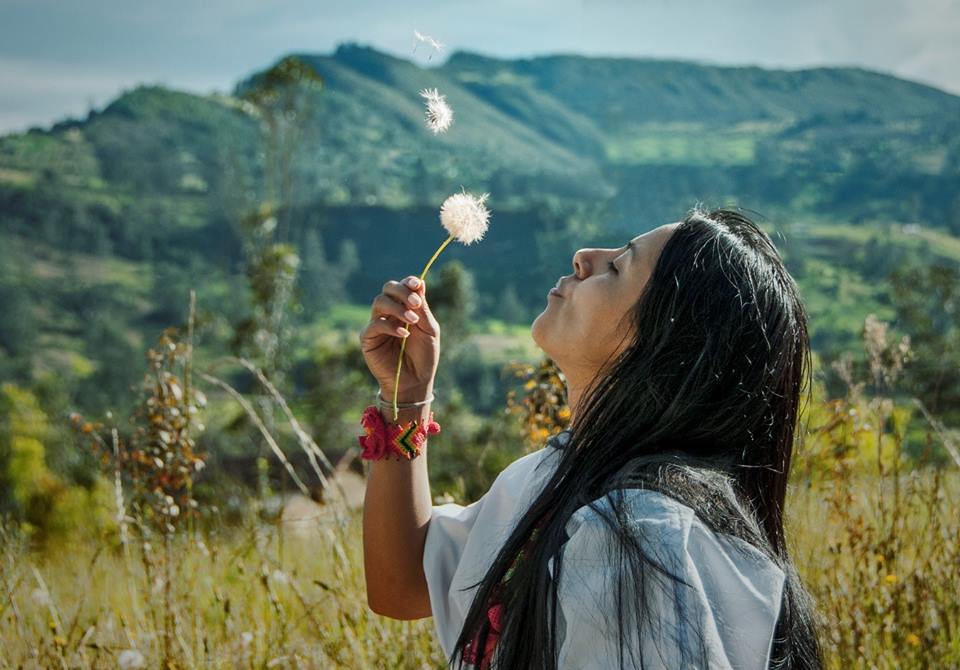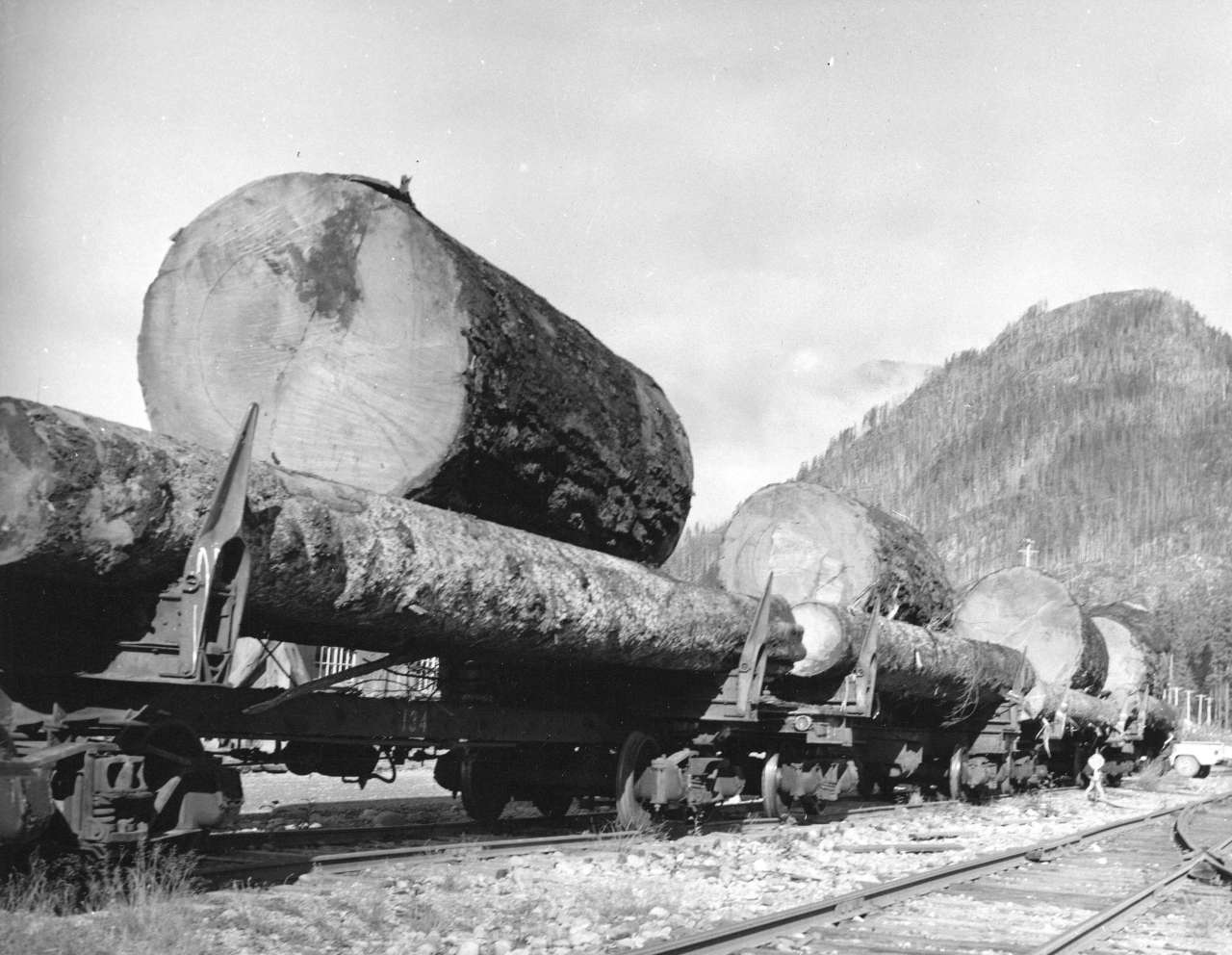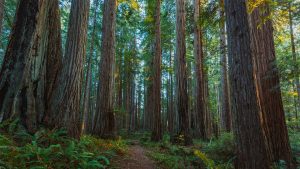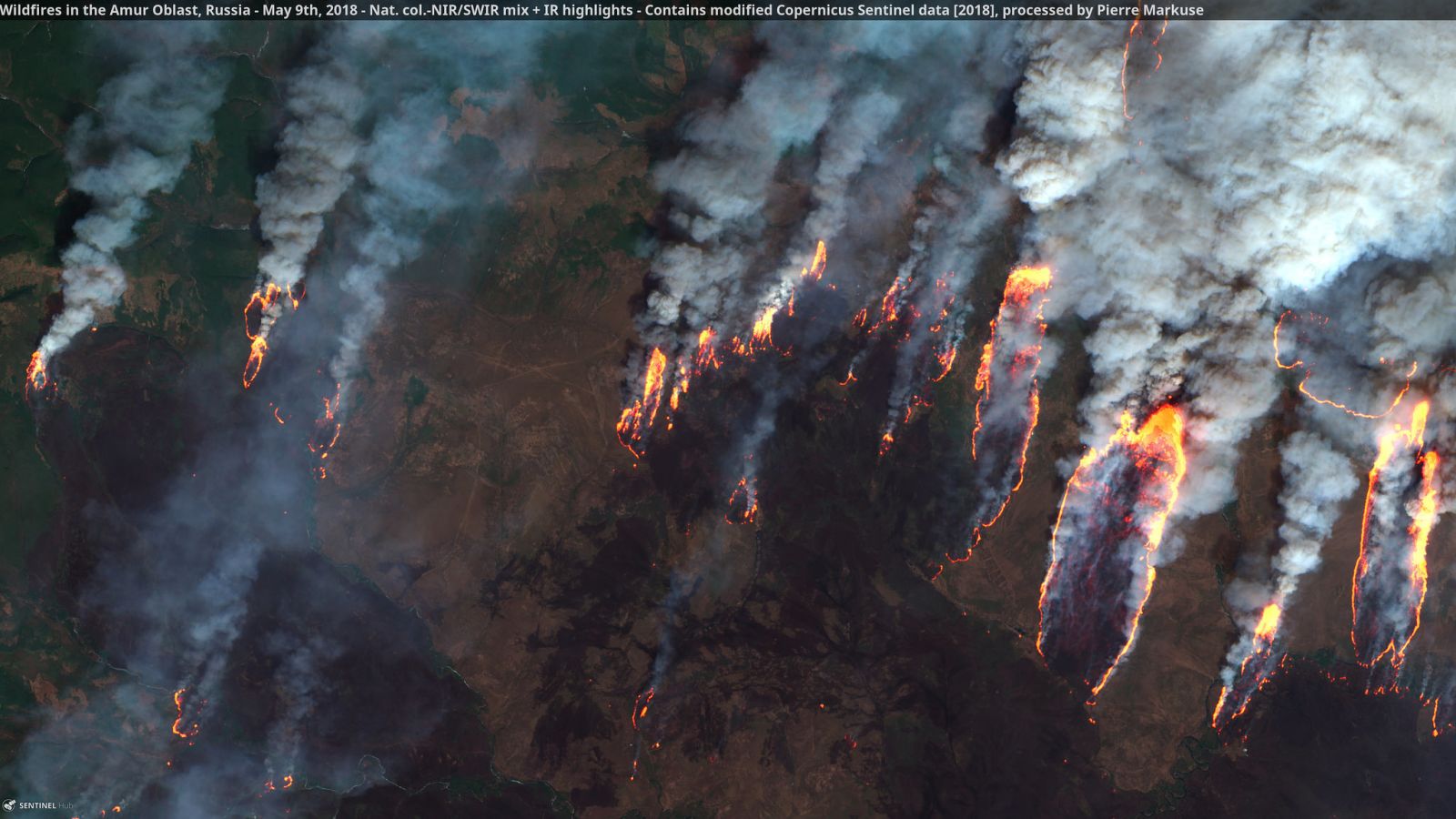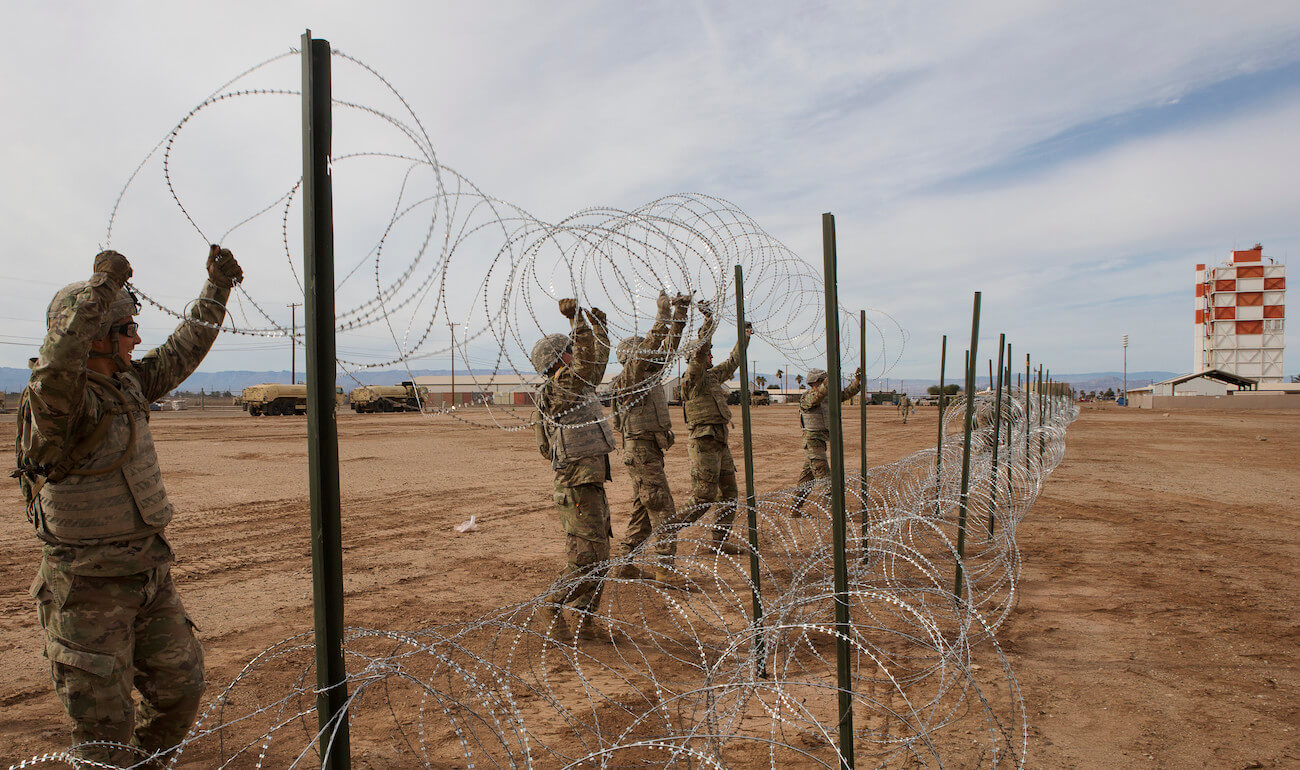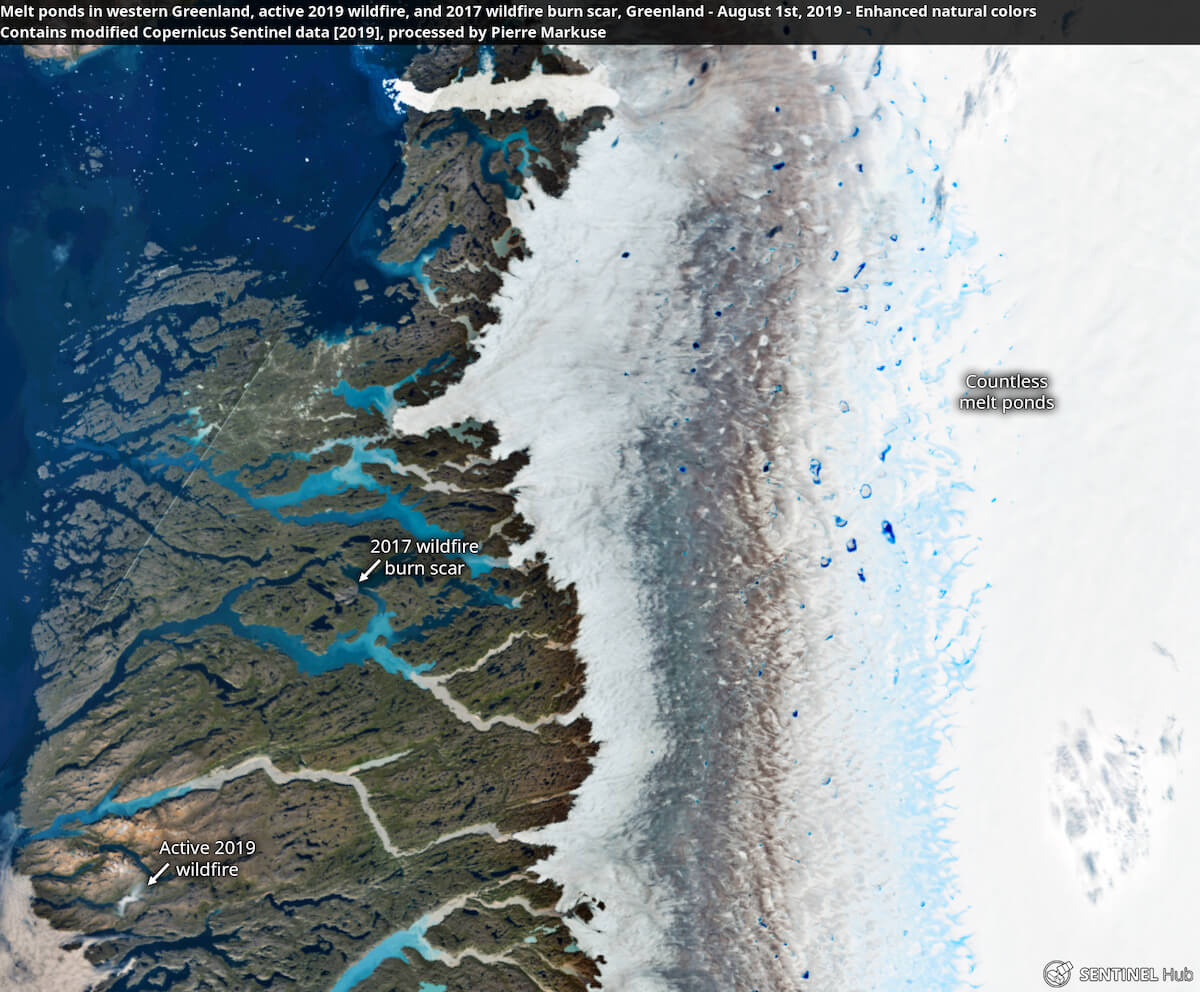
by DGR News Service | Aug 7, 2019 | Climate Change, The Solution: Resistance
By Max Wilbert / Image by Pierre Markuse, CC BY 2.0, shows 2019 melt ponds across the surface of the Greenland Ice Sheet)
Official temperature records for July 2019 show that it was the hottest July and hottest single month ever recorded globally, at 1.2°C hotter than the pre-industrial average.
This comes after a June that was the hottest June every recorded, and a January, February, March, April, and May that were all in the top four hottest months every recorded.
Greenland: 12.5 Billion Tons of Ice Lost in 24 Hours
On August 1st, more than 12.5 billion tons of ice melted in Greenland as temperatures reached 30 degrees above average. Video here. This level of melting is consistent with what some climate models were predicting—for the year 2070.
The last four years, 2015, 2016, 2017, and 2018 are the four hottest years on record globally, but 2019 may break the new record for the hottest year ever recorded.
As we recently noted, climate chaos is accelerating. Industrial civilization and the global capitalist economy are wreaking havok on the planet. And as Christian Parenti has written, “Climate change arrives in a world primed for crisis. The current and impending dislocations of climate change intersect with the already-existing crises of poverty and violence. I call this collision of political, economic, and environmental disasters “the catastrophic convergence.”
The Unfolding Climate Chaos
The scale of unfolding catastrophe is almost unimaginable. One report concluded that “The number of climate refugees could increase dramatically in future. Researchers of the Max Planck Institute for Chemistry and the Cyprus Institute in Nicosia have calculated that the Middle East and North Africa could become so hot that human habitability is compromised.”
William R. Freudenburg, and professor of Environmental Sociology, released a report in 2010 finding that new scientific findings almost always underestimate the severity and speed of global warming.
“Reporters need to learn that, if they wish to discuss ‘both sides’ of the climate issue, the scientifically legitimate ‘other side’ is that, if anything, global climate disruption is likely to be significantly worse than has been suggested in scientific consensus estimates to date,” he said.
Solutions to the Climate Crisis
Deep Green Resistance does not believe that climate marches will save the planet. This has been happening for decades, and no progress has been made. Emissions are higher than ever. The U.S. is now the world’s leading oil producer and mainstream climate movements have had zero success in stopping this.
Instead, we advocate for organized militant resistance, including coordinated sabotage against the industrial system. We don’t believe the ruling class will stop the murder of the planet unless they are literally forced to stop.
Here is an excerpt from the Deep Green Resistance book:
Historians now believe that Allied reluctance to attack early in the war may have cost many millions of civilian lives. By failing to stop Germany early, they made a prolonged and bloody conflict inevitable. General Alfred Jodl, the German Chief of the Operations Staff of the Armed Forces High Command, said as much during his war crimes trial at Nuremburg….
[In this future scenario,] Resisters aimed to reduce consumption and industrial activity, so it didn’t matter to them that some facilities had backup generators or that states engaged in conservation and rationing. They celebrated nationwide oil conservation and factories running on reduced power. They remembered that in the whole of its history, the mainstream environmental movement never even stopped the growth of fossil fuel consumption. To actually reduce it was unprecedented… Targeting energy networks was a high priority to resisters. Many electrical grids were already operating near capacity, and were expensive to expand. They became more important as highly portable forms of energy like fossil fuels were partially replaced by less portable forms of energy. Resisters recognized that energy networks often depend on a few major continent-spanning trunks, which were very vulnerable to disruption.”
To learn more about effective strategies for defending the climate, read the Deep Green Resistance book or browse our website.
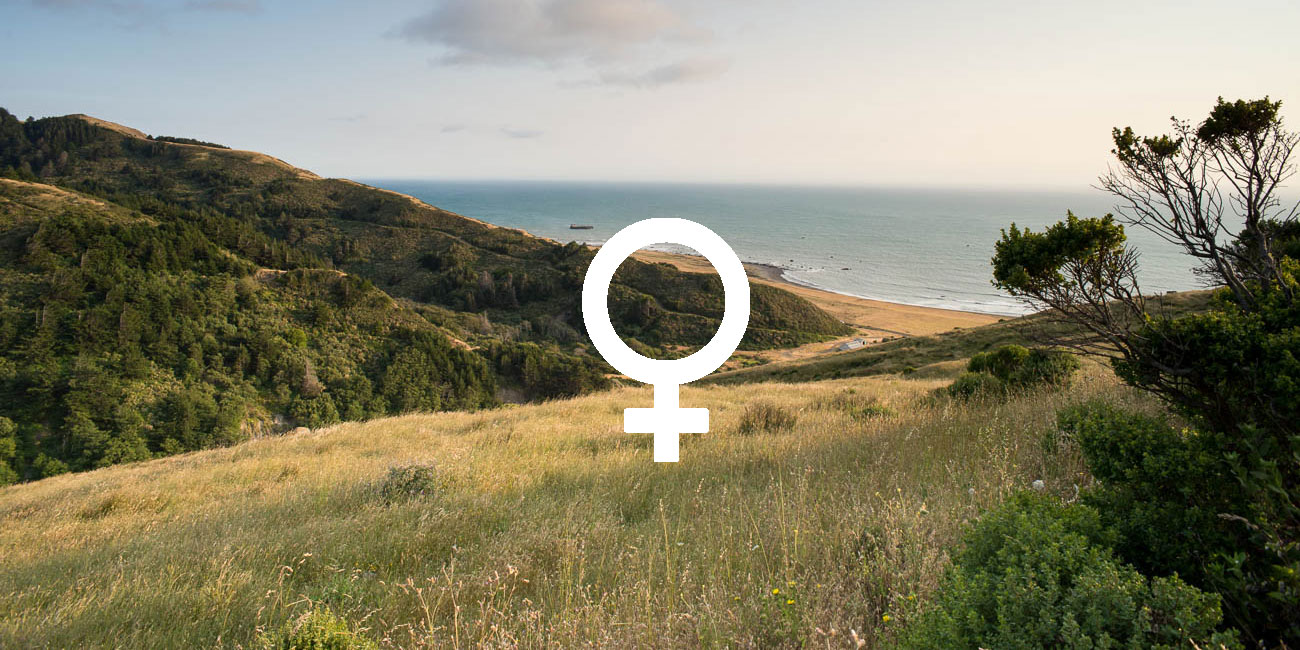
by DGR News Service | Aug 5, 2019 | Agriculture, Biodiversity & Habitat Destruction, Male Supremacy, The Solution: Resistance, Women & Radical Feminism
Editors Note: This essay by Deep Green Resistance co-founder Lierre Keith was originally published on the DGR News Service in August 2015 under the title, “The Girls and the Grasses.” We think it an exceptional piece, and would like to share it again. [Photo by Max Wilbert, CC BY-NC-SA 4.0.]
by Lierre Keith
Captured in a test tube, blood may look like a static liquid, but it’s alive, as animate and intelligent as the rest of you. It also makes up a great deal of you: of your 50 trillion cells, one-quarter are red blood cells. Two million are born every second. On their way to maturation, red blood cells jettison their nuclei―their DNA, their capacity to divide and repair. They have no future, only a task: to carry the hemoglobin that will hold your oxygen. They don’t use the oxygen themselves–they only transport it. This they do with exquisite precision, completing a cycle of circulation through your body every twenty seconds for a hundred days. Then they die.
The core of hemoglobin is a molecule of iron. It’s the iron that grasps the oxygen at the surface of your lungs, hangs on through the rush of blood, then releases it to wanting cells. If iron goes missing, the body, as ever, has a fallback plan. It adds more water to increase blood volume; thin blood travels faster through the fine capillaries. Do more with less.
All good except there’s less and less oxygen offered to the cells. Another plan kicks in: increased cardiac output. The heart ups its stroke volume and its rate. To keep you from exploding, the brain joins in, sending signals to the muscles enfolding each blood vessel, telling them to relax. Now blood volume can increase with blood pressure stable.
But still no iron arrives. At this point, the other organs have to cooperate, giving up blood flow to protect the brain and heart. The skin makes major sacrifices, which is why anemics are known for their pallor. Symptoms perceived by the person―you―will probably increase as your tissues, and then organs, begin to starve.
If there is no relief, ultimately all the plans will fail. Even a strong heart can only strain for so long. Blood backs up into the capillaries. Under the pressure, liquid seeps out into surrounding tissues. You are now swelling and you don’t know why. Then the lungs are breached. The alveoli, the tiny sacs that await the promise of air, stiffen from the gathering flood. It doesn’t take much. The sacs fill with fluid. Your body is drowning itself. This is called pulmonary edema, and you are in big trouble.
I know this because it happened to me. Uterine fibroids wrung a murder scene from me every month; the surgery to remove them pushed me across the red cell Rubicon. I knew nothing: my body understood and responded. My eyes swelled, then my ankles, my calves. Then I couldn’t breathe. Then it hurt to breathe. I finally stopped taking advice from my dog―Take a nap! With me!–and dragged myself to the ER, where, eventually, all was revealed.
Two weeks later, the flood had subsided, absorbed back into some wetland tissue of my body, and I felt the absence of pain as a positive. Breathing was exquisite, the sweetest thing I could imagine. Every moment of effortless air was all I could ever want. I knew it would fade and I would forget. But for a few days, I was alive. And it was good.
Our bodies are both all we have and everything we could want. We are alive and we get to be alive. There is joy on the surface of the skin waiting for sunlight and soft things (both of which produce endorphins, so yes: joy). There is the constant, stalwart sound of our hearts. Babies who are carried against their mothers’ hearts learn to breathe better than those who aren’t. There is the strength of bone and the stretch of muscle and their complex coordination. We are a set of electrical impulses inside a watery environment: how? Well, the nerves that conduct the impulses are sheathed by a fatty substance called myelin―they’re insulated. This permits “agile communication between distant body parts.” Understand this: it’s all alive, it all communicates, it makes decisions, and it knows what it’s doing. You can’t possibly fathom its intricacies. To start to explore the filigree of brain, synapse, nerve, and muscle is to know that even the blink of your eyes is a miracle.
Our brains were two million years in the making. That long, slow accretion doubled our cranial capacity. And the first thing we did with it was say thank you. We drew the megafauna and the megafemales, sculpted and carved them. The oldest known figurative sculpture is the Goddes of Hohle Fels, and 40,000 years ago someone spent hundreds of hours carving Her. There is no mystery here, not to me: the animals and the women gave us life. Of course they were our first, endless art project. Awe and thanksgiving are built into us, body and brain. Once upon a time , we knew we were alive. And it was good.
__________
And now we leave the realm of miracles and enter hell.
Patriarchy is the ruling religion of the planet. It comes in variations―some old, some new, some ecclesiastical, some secular. But at bottom, they are all necrophilic. Erich Fromm describes necrophilia as “the passion to transform that which is alive into something unalive; to destroy for the sake of destruction; the exclusive interest in all that is purely mechanical.” In this religion, the worst sin is being alive, and the carriers of that sin are female. Under patriarchy, the female body is loathsome; its life-giving fat-cells vilified; its generative organs despised. Its natural condition is always ridiculed: normal feet must be turned into four-inch stubs; rib cages must be crushed into collapse; breasts are varyingly too big or too small or excised entirely. That this inflicts pain―if not constant agony―is not peripheral to these practices. It’s central. When she suffers, she is made obedient.
Necrophilia is the end point of sadism. The sadistic urge is about control–“the passion to have absolute and unrestricted control over a living being,” as Fromm defined it. The objective of inflicting pain and degradation is to break a human being. Pain is always degrading; victimization humiliates; eventually, everyone breaks. The power to do that is the sadist’s dream. And who could be more broken to your control than a woman who can’t walk?
Some nouns: glass, scissors, razors, acid. Some verbs: cut, scrape, cauterize, burn. These nouns and verbs create unspeakable sentences when the object is a seven-year-old girl with her legs forced open. The clitoris, with its 8,000 nerve endings, is always sliced up. In the most extreme forms of FGM, the labia are cut off and the vagina sewn shut. On her wedding night, the girl’s husband will penetrate her with a knife before his penis.
You don’t do this to a human being. You do it to an object. That much is true. But there is more. Because the world is full of actual objects—cardboard boxes and abandoned cars—and men don’t spend their time torturing those. They know we aren’t objects, that we have nerves that feel and flesh that bruises. They know we have nowhere else to go when they lay claim to our bodies. That’s where the sadist finds his pleasure: pain produces suffering, humiliation perhaps more, and if he can inflict that on her, it’s absolute proof of his control.
Behind the sadists are the institutions, the condensations of power, that hand us to him. Every time a judge rules that women have no right to bodily integrity—that upskirt photos are legal, that miscarriages are murder, that women should expect to be beaten—he wins. Every time the Fashion Masters make heels higher and clothes smaller, he smiles. Every time an entire class of women—the poorest and most desperate, at the bottom of every conceivable hierarchy—are declared legal commodities for sex, he gets a collective hard-on. Whether he personally uses any such women is beside the point. Society has ruled they are there for him, other men have ensured their compliance, and they will comply. He can kill one—the ultimate sex act for the sadist—and no one will notice. And no one does.
There is no stop to this, no natural endpoint. There is always another sentient, self-willed being to inflame his desire to control, so the addiction is forever fed. With other addictions, the addict bottoms out, his life becomes unmanageable, and the stark choice is stop or die. But the sadist isn’t hurting himself. There’s no looming bottom to hit, only an endless choice of victims, served up by the culture. Women are the feast at our own funeral, and he is happy to feed.
_____
If feminism was reduced to one word, it would be this: no. “No” is a boundary, spoken only by a self who claims one. Objects have neither; subjects begin at no. Feminists said no and we meant it.
The boundary of “no” extended outward, an insult to one being an injury to all: “we” is the word of political movements. Without it, women are cast adrift in a hostile, chaotic sea, holding our breath against the next Bad Thing. With the lens of feminism, the chaos snaps into sharp focus. We gave words to the Bad Things, then faced down denial and despair to see the pattern. That’s called theory. Then we demanded remedies. That’s what subjects, especially political subjects, do. Emmeline Pankhurst, leader of the British suffragettes, worked at the Census Office as a birth registrar. Every day, young girls came in with their newborns. Every day, she had to ask who the father was, and every day the girls wept in humiliation and rage. Reader, you know who the fathers were. That’s why Pankhurst never gave up.
To say no to the sadist is to assert those girls as political subjects, as human beings with the standing that comes from inalienable rights. Each and every life is self-willed and sovereign; each life can only be lived in a body. Not an object to be broken down for parts: a living body. Child sexual abuse is especially designed to turn the body into a cage. The bars may start as terror and pain but they will harden to self-loathing. Instilling shame is the best method to ensure compliance: we are ashamed—sexual violation is very good at that—and for the rest of our lives we will comply. Our compliance is, of course, his control. His power is his pleasure, and another generation of girls will grow up in bodies they will surely hate, to be women who comply.
_______
What has been done to our bodies has been done to our planet. The sadist exerts his control; the necrophiliac turns the living into the dead. The self-willed and the wild are their targets and their necrotic project is almost complete.
Taken one by one, the facts are appalling. In my lifetime, the earth has lost half her wildlife. Every day, two hundred species slip into that longest night of extinction. “Ocean” is synonymous with the words abundance and plenty. Fullness is on the list, as well as infinity. And by 2048, the oceans will be empty of fish. Crustaceans are experiencing “complete reproductive failure.” In plain terms, their babies are dying. Plankton are also disappearing. Maybe plankton are too small and green for anyone to care about, but know this: two out of three animal breaths are made possible by the oxygen plankton produce. If the oceans go down, we go down with them.
How could it be otherwise? See the pattern, not just the facts. There were so many bison on the Great Plains, you could sit and watch for days as a herd thundered by. In the central valley of California, the flocks of waterbirds were so thick they blocked out the sun. One-quarter of Indiana was a wetland, lush with life and the promise of more. Now it’s a desert of corn. Where I live in the pacific northwest, ten million fish have been reduced to ten thousand. People would hear them coming for a whole day. This is not a story: there are people alive who remember it. And I have never once heard the sound that water makes when forty million years of persistence finds it way home. Am I allowed to use the word “apocalypse” yet?
The necrophiliac insists we are mechanical components, that rivers are an engineering project, and genes can be sliced up and arranged at whim. He believes we are all machines, despite the obvious: a machine can be taken apart and put back together. A living being can’t. May I add: neither can a living planet.
Understand where the war against the world began. In seven places around the globe, humans took up the activity called agriculture. In very brute terms, you take a piece of land, you clear every living thing off it, and then you plant it to human use. Instead of sharing that land with the other million creatures who need to live there, you’re only growing humans on it. It’s biotic cleansing. The human population grows to huge numbers; everyone else is driven into extinction.
Agriculture creates a way of life called civilization. Civilization means people living in cities. What that means is: they need more than the land can give. Food, water, energy have to come from someplace else. It doesn’t matter what lovely, peaceful values people hold in their hearts. The society is dependent on imperialism and genocide. Because no one willing gives up their land, their water, their trees. But since the city has used up its own, it has to go out and get those from somewhere else. That’s the last 10,000 years in a few sentences.
The end of every civilization is written into the beginning. Agriculture destroys the world. That’s not agriculture on a bad day. That’s what agriculture is. You pull down the forest, you plow up the prairie, you drain the wetland. Especially, you destroy the soil. Civilizations last between 800 and maybe 2,000 years—they last until the soil gives out.
What could be more sadistic then control of entire continents? He turns mountains into rubble, and rivers must do as they are told. The basic unit of life is violated with genetic engineering. The basic unit of matter as well, to make bombs that kill millions. This is his passion, turning the living into the dead. It’s not just individual deaths and not even the deaths of species. The process of life itself is now under assault and it is losing badly. Vertebrate evolution has long since come to a halt—there isn’t enough habitat left. There are areas in China where there are no flowering plants. Why? Because the pollinators are all dead. That’s five hundred million years of evolution: gone.
He wants it all dead. That’s his biggest thrill and the only way he can control it. According to him it was never alive. There is no self-willed community, no truly wild land. It’s all inanimate components he can arrange to this liking, a garden he can manage. Never mind that every land so managed has been lessened into desert. The essential integrity of life has been breached, and now he claims it never existed. He can do whatever he wants. And no one stops him.
__________
Can we stop him?
I say yes, but then I have no intention of giving up. The facts as they stand are unbearable, but it’s only in facing them that pattern comes clear. Civilization is based on drawdown. It props itself up with imperialism, conquering its neighbors and stripping their land, but eventually even the colonies wear out. Fossil fuel has been an accelerant, as has capitalism, but the underlying problem is much bigger than either. Civilization requires agriculture, and agriculture is a war against the living world. Whatever good was in the culture before, ten thousand years of that war has turned it necrotic.
But what humans do they can stop doing. Granted every institution is headed in the wrong direction, there’s no material reason the destruction must continue. The reason is political: the sadist is rewarded, and rewarded well. Most leftists and environmentalists see that. What they don’t see is the central insight of radical feminism: his pleasure in domination.
The real brilliance of patriarchy is right here: it doesn’t just naturalize oppression, it sexualizes acts of oppression. It eroticizes domination and subordination and then institutionalizes them into masculinity and femininity. Men become real men by breaking boundaries—the sexual boundaries of women and children, the cultural and political boundaries of indigenous people, the biological boundaries of rivers and forests, the genetic boundaries of other species, and the physical boundaries of the atom itself. The sadist is rewarded with money and power, but he also gets a sexual thrill from dominating. And the end of the world is a mass circle jerk of autoerotic asphyxiation.
The real brilliance of feminism is that we figured that out.
What has to happen to save our planet is simple: stop the war. If we just get out of the way, life will return because life wants to live. The forests and prairies will find their way back. Every dam will fail, every cement channel, and the rivers will ease their sorrows and meet the ocean again. The fish will know what to do. In being eaten, they feed the forest, which protects the rivers, which makes a home for more salmon. This is not the death of destruction but the death of participation that makes the world whole.
Sometimes there are facts that require all the courage we have in our hearts. Here is one. Carbon has breached 400 ppm. For life to continue, that carbon needs to get back into the ground. And so we come to grasses.
Where the world is wet, trees make forests. Where it’s dry, the grasses grow. Grasslands endure extreme heat in summer and vicious cold in winter. Grasses survive by keeping 80 percent of their bodies underground, in the form of roots. Those roots are crucial to the community of life. They provide physical channels for rain to enter the soil. They can reach down fifteen feet and bring up minerals from the rocks below, minerals that every living creature needs. They can build soil at an extraordinary rate. The base material they use to make soil is carbon. Which means the grasses are our only hope to get that carbon out of the sky.
And they will do it if we let them. If we could repair 75 percent of the world’s grasslands—destroyed by the war of agriculture—in under fifteen years, the grasses would sequester all the carbon that’s been released since the beginning of the industrial age. Read that again if you need to. Then take it with you wherever you go. Tell it to anyone who will listen. There is still a chance.
The grasses can’t do it alone. No creature exists independent of all others. Repairing the grasslands means restoring the ruminants. In the hot, dry summer, life goes dormant on the surface of the soil. It’s the ruminants who keep the nutrient cycle moving. They carry an ecosystem inside themselves, especially the bacteria that digests cellulose. When a bison grazes, she’s not actually eating the grass. She’s feeding it to her bacteria. The bacteria eat the grass and then she eats the bacteria. Her wastes then water and fertilize the grasses. And the circle is complete.
The grasslands have been eradicated for agriculture, to grow cereal grains for people. Because I want to restore the grasses, I get accused of wanting to kill six billion people. That’s not a random number. In 1800, at the beginning of the Industrial Age, there were one billion people. Now there are seven billion. Six billion are only here because of fossil fuel. Eating a non-renewable resource was never a plan with a future. Yet pointing that out somehow makes me a mass murderer.
Start with the obvious. Nothing we do at these numbers is sustainable. Ninety-eight percent of the old-growth forests and 99 percent of the grasslands are gone, and gone with them was most of the soil they built. There’s nothing left to take. The planet has been skinned alive.
Add to that: all civilizations end in collapse. All of them. How could it be otherwise if your way of life relies on destroying the place you live? The soil is gone and the oil is running out. By avoiding the facts, we are ensuring it will end in the worst possible way.
We can do better than mass starvation, failed states, ethnic strife, misogyny, petty warlords, and the dystopian scenarios that collapse brings. It’s very simple: reproduce at less than replacement numbers. The problem will take care of itself. And now we come to the girls.
What drops the birthrate universally is raising the status of women. Very specifically, the action with the greatest impact is teaching a girl to read. When women and girls have even that tiny bit of power over their lives, they choose to have fewer children. Yes, women need birth control, but what we really need is liberty. Around the world, women have very little control over how men use our bodies. Close to half of all pregnancies are unplanned or unwanted. Pregnancy is the second leading cause of death for girls age 15-19. Not much has changed since Emmeline Pankhurst refused to give up.
We should be defending the human rights of girls because girls matter. As it turns out, the basic rights of girls are crucial to the survival of the planet.
Can we stop him?
Yes, but only if we understand what we’re up against.
He wants the world dead. Anything alive must be replaced by something mechanical. He prefers gears, pistons, circuits to soft animal bodies, even his own. He hopes to upload himself into a computer some day.
He wants the world dead. He enjoys making it submit. He’s erected giant cities where once were forests. Concrete and asphalt tame the unruly.
He wants the world dead. Anything female must be punished, permanently. The younger they are, the sooner they break. So he starts early.
A war against your body is a war against your life. If he can get us to fight the war for him, we’ll never be free. But we said every woman’s body was sacred. And we meant it, too. Every creature has her own physical integrity, an inviolable whole. It’s a whole too complex to understand, even as we live inside it. I had no idea why my eyes were swelling and my lungs were aching. The complexities of keeping me alive could never be left to me.
One teaspoon of soil contains a million living creatures. One tiny scoop of life and it’s already more complex than we could ever understand. And he thinks he can manage oceans?
We’re going to have to match his contempt with our courage. We’re going to have to match his brute power with our fierce and fragile dreams. And we’re going to have to match his bottomless sadism with a determination that will not bend and will not break and will not stop.
And if we can’t do it for ourselves, we have to do it for the girls.
Whatever you love, it is under assault. Love is a verb. May that love call us to action.
Lierre Keith is the author of six books. Visit her website at www.lierrekeith.com
This essay first appeared August 8, 2015 on RadFem Repost.
